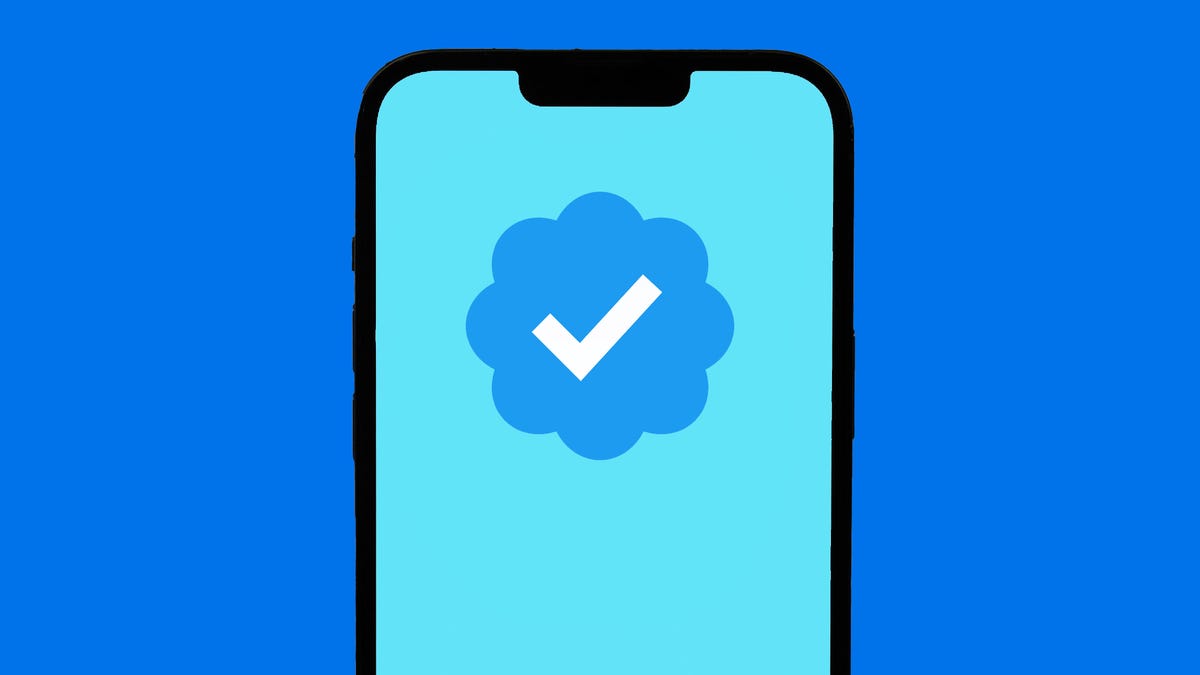Thanks Elon, I'm Done With Twitter's Dumb Blue Check Mark
Commentary: Now that anyone can get a blue check mark for $8, its actual purpose of verification is gone. So, why participate?

Sigh.
In a world of fakes, I sure wish there was a way to tell what was real.
Twitter's blue check mark was an ingenious answer to this impossible problem. The check mark meant Twitter verified that the person logging into that account was who they said they were. Even pseudonymous accounts for political activists living under repressive regimes could reliably get their message out.
To help, Twitter enacted extra protections like two-step verification to help us all trust the system.
Of course, it wasn't perfect. For years, Twitter struggled to keep up with the volume of accounts that genuinely deserved verification. In the meantime, internet trolls and others arguing in bad faith seized on the perceived status symbol that came with a check mark next to someone's username.
When Elon Musk took over Twitter, he decided the "current lords & peasants system for who has or doesn't have a blue check mark is bullshit," as he tweeted on Nov. 1. Instead, he said anyone could get a check mark by paying $8 per month.
A couple weeks later, it's devolved into chaos. So, I'm turning in my blue check mark as soon as I can.
I cannot in good conscience participate in a program that no longer serves the purpose I signed up for. What's the point if anyone can create a "parody" account, receive a blue check mark for $8, and then create havoc by confusing everyone about who's tweeting what?
Oddly enough, the last straw for me came from Musk himself. He responded to a tweet from the blue-check-marked account for Reuters, posting an article about electric cars in China. Musk said it was false. Alex Kantrowitz, a longtime colleague who writes the Big Technology newsletter, said he "Definitely had to check if the Reuters account was real."
Definitely had to check if the Reuters account was real pic.twitter.com/p1TFcIiOWw
— Alex Kantrowitz (@Kantrowitz) November 11, 2022
I don't speak for all my CNET colleagues, of course, nor am I passing judgment on anyone who sticks with the blue check mark despite everything happening. I just cannot.
Long time coming
I've struggled with social media for years, even though my career has been so closely tied to it.
For a while, I tried to embrace it all, posting my favorite restaurants on FourSquare and Yelp, creating "circles" of friends on Google Plus, posting photos of my truly adorable children to Facebook and, yes, participating in Twitter.
I didn't win the popularity game like others had, and when Twitter gave me a blue check mark a few years after it launched in 2009, nothing really seemed to change much. The same was true when Facebook gave me a blue check mark for my account there too. I did appreciate that when I was reporting live from an Apple event, some people looked to my account for information. But that was the only value it seemed to bring.
Broadly, I did appreciate the communities I found through social media, and the deeper connections I'd made with friends and family.
But the last couple years have soured me on so much of it. A skit on Saturday Night Live just before Facebook co-founder Mark Zuckerberg testified before Congress in 2018 really solidified it for me. The weekly comedy program dispatched one of its comedians to do an imitation, skewering Zuckerberg's public persona and the many times he's apologized for scandals over the years.
"Unlike my facial expression, Facebook is going to change," the parody-Zuckerberg said with a snarky shrug.
Jack Dorsey, Twitter's CEO at the time, wasn't under as harsh a microscope as Zuckerberg, but Twitter was struggling all the same.
Soon, he found himself on Capitol Hill too, often disappointing lawmakers like Democrat Mark Warner of Virginia, who described one closed-door meeting with him in 2017 as "deeply disappointing." Dorsey, he said, "showed [an] enormous lack of understanding from the Twitter team of how serious this issue is, the threat it poses to democratic institutions, and again begs many more questions than they offered."
Now, Twitter is in Musk's hands, and the one tool the company offered to identify authentic accounts has gone.
In an open letter to Musk, I asked whether he was so focused on what he thought Twitter ought to be that he'd lost sight of how it's actually being used.
As Twitter pursues the goal of elevating citizen journalism, media elite will try everything to stop that from happening
— Elon Musk (@elonmusk) November 11, 2022
And as the blue check mark problem has grown under Musk, he's only seemed to laugh.
Some epically funny tweets 🤣🤣
— Elon Musk (@elonmusk) November 11, 2022
To be sure, I won't be giving up on Twitter entirely. I don't think many of today's journalists really can, particularly if they cover the tech industry.
But I do hope that Musk learns from his mistakes and fixes the problems Twitter's always faced. There's a lot of good Twitter's brought to the world. I'd hate to see that all go because the bad won out.

